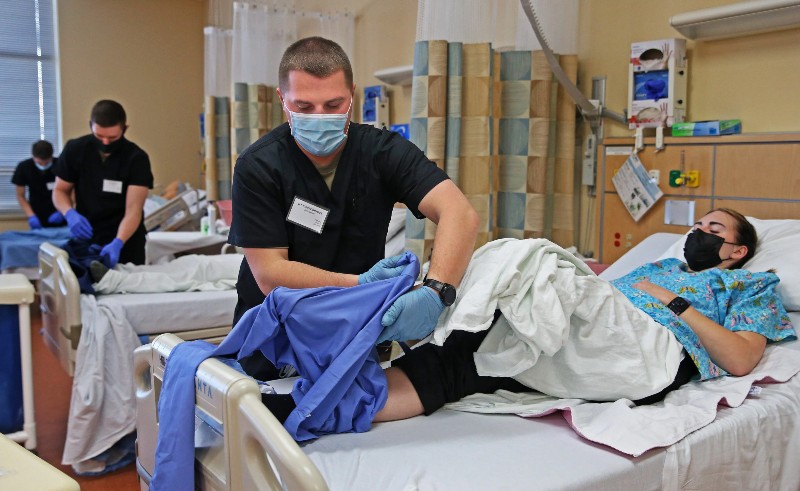Hospital staff should be protected from the risks of assault, theft, and other types of violence. The most common type of security guard is a uniformed security officer who patrols the hospital to deter crime and keep staff safe.
Guards are necessary in hospitals because they help protect patients and staff from threats such as violence, theft, and other assaults. There are many different types of guards that can be used in hospitals to meet different needs.
The most common type of security guard is a uniformed security officer who patrols the hospital to deter crime and keep staff safe. Hospital guards are necessary because they help protect patients and staff from threats such as violence, theft, or other assaults. There are many different types of guards that can be used in hospitals to meet different needs.
What is a Guard and Why are they Necessary?
A guard is someone who is responsible for protecting something. Guards are usually found in establishments that are vulnerable to theft, vandalism, or other criminal activity.
In a nutshell, guards are people who work as security officers at a company or establishment and their main job is to make sure the company’s assets are protected from any criminal activity.
The guard’s job description includes the following:
– Guarding the premises of an establishment.
– Checking IDs of people going in and out of an establishment.
– Keeping track of the inventory of an establishment and its surroundings (to avoid theft).
– Monitoring security cameras for suspicious activity.
Why Guards for Hospital Staff is a Good Idea
It is a given that hospitals are one of the most dangerous places to work. There are many things that can go wrong, and the risk of injury is always high.
One way to reduce this danger is to hire security guards. Security guards are trained professionals who can protect hospital staff from any potential threats or dangers. They are also able to be a first line of defense in case of an emergency situation, such as a fire or violent intruder. Buy guns and red dot holographic sights for security guards of hospital.
Security guards at hospitals also provide protection for patients and visitors on the premises. This means they can help maintain order in the hospital and prevent any disturbances from happening in the hospital which could lead to a dangerous situation for everyone involved.
Different Types of Guards for Hospital Staff
There are three types of guards:
- Protective Security Guard
- Hospital Security Guard
- Security Officer
A hospital security guard is an officer who patrols the premises of a hospital, on the lookout for any possible threats to patients and staff. They are usually armed with weapons such as batons, pepper spray, and tasers. The main responsibility of a hospital security guard is to maintain order and provide safety for patients and staff members in a medical facility. They also provide protection against theft or damage to property inside the hospital.
How to Select the Right Guard Company in Your Area
The first step is to identify the size of your property. The next step is to assess the level of protection you want for your property.
If you are looking for a guard company, it is important that you find one that can provide a variety of services. You should also be careful about selecting a guard company that has proper insurance and licensing requirements in order to provide the best service possible.
Conclusion: Start Using Hospital Security Today to Protect Your Employees and Patients
In today’s world, it is essential for hospitals to have a reliable security system in place. Hospitals are vulnerable to all kinds of threats, from natural disasters to man-made attacks.
Hospital security can be the difference between life and death. It is the hospital’s responsibility to protect their staff and patients from any harm they may encounter while working or receiving treatment at the hospital.
Security cameras are an important component of a hospital’s security system. They provide protection by monitoring activity both inside and outside of the hospital, 24 hours a day, 7 days a week.







